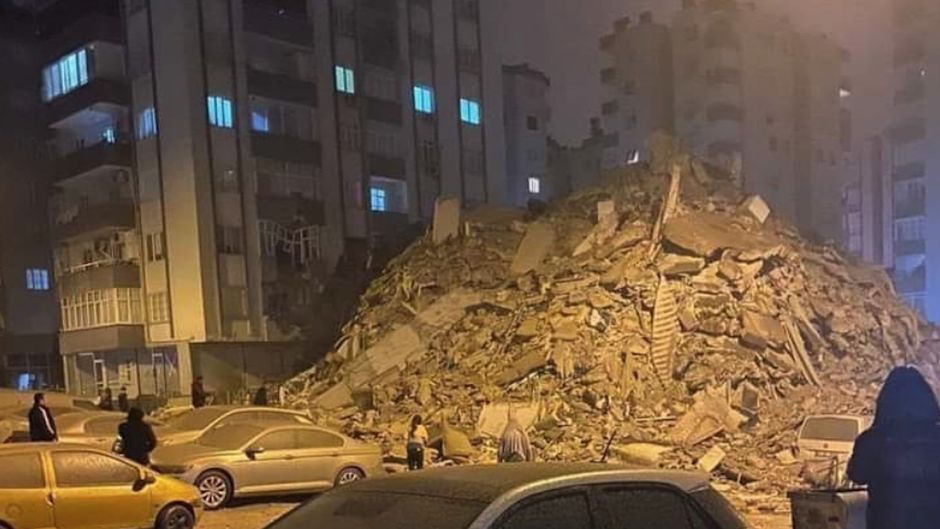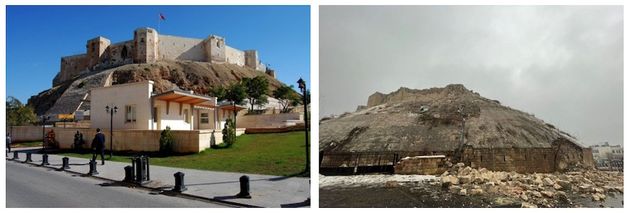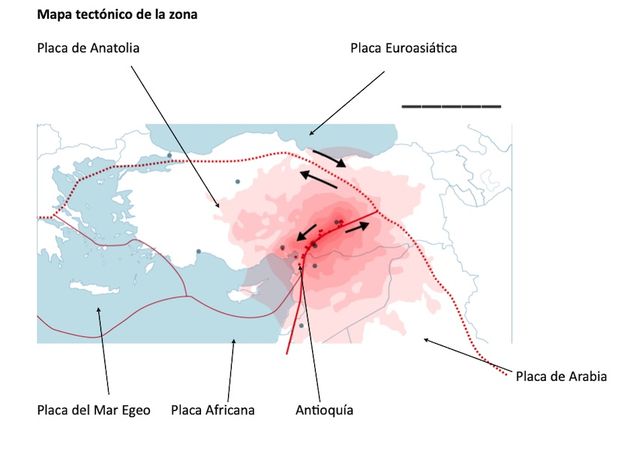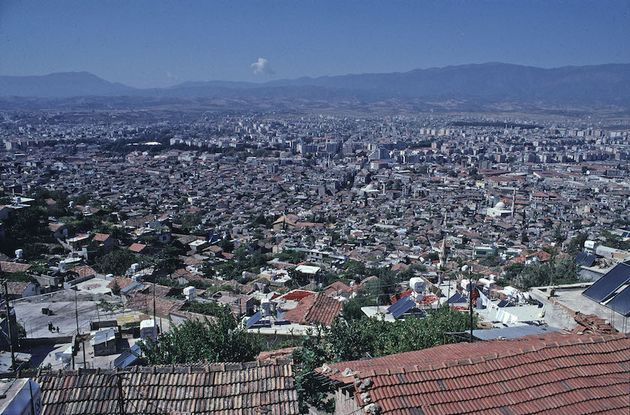Antioch was the origin of the first offering of humanitarian aid from a Christian community.
 A collapsed building after the earthquake in Antakya.
A collapsed building after the earthquake in Antakya.
A major earthquake, measuring 7.8 on the Richter scale, occurred early Monday morning in the provinces of Gaziantep and Malatya, inTurkey.
The depth of the earthquake was only 7 kilometres, which increases the impact. Now, at least 5,000 people have died, and it is expected that there will be many more.
Furthermore, due to the location of the area, a poor area, far from major cities, hit by political instability and the war on the Syrian border, and with large refugee camps (4 million refugees in camps on the Syrian-Turkish border), access to the affected area for emergency services is difficult. Winter made the difficulties even more complicated as it is very cold and snowy, especially in the mountains of the interior (Malatya).
The destruction has hit thousands of homes, public buildings, including historic heritage such as the Gaziantep Castle, whose original structure dates back more than 2,000 years, which was virtually destroyed by the earthquake.

The castle was enlarged during the Byzantine Empire and has undergone several reconstructions. It was one of the main tourist attractions in the province.
Aftershocks following the initial earthquake were large and abundant as well, and they continue. A second earthquake occurred at midday on Monday.
This region is one of the most active tectonic zones on the planet, where several tectonic plates converge and press against each other. The area is the border between the two giant plates of Eurasia and Africa.
The reason for these earthquakes is the friction between two opposing plates, the Anatolian plate, which is moving westward, and the Arabian plate, which, under pressure from the African plate, is moving northeastward.

There have been 14 earthquakes in Turkey since 1939.
The last was a 7.8 in Izmir, (70 kilometres from Istanbul) on the northern side of the Anatolian plate in August 1999. It killed 35,000 people, affecting Istanbul and over 15 million others.
In eastern Turkey the largest was in 1939, causing 30,000 deaths.
The plates, huge blocks of solid rock floating on the liquid mantle of the earth's interior, press against each other, and when the pressure overcomes the friction there is a sudden movement, and the discharge of the accumulated energy is distributed in the form of seismic waves outwards from the epicentre, the earth's point above the focus, usually along existing faults.
It is a seismic zone, where there have been multiple recorded earthquakes in history, the last major one in this area was 100 years ago.
It is also expected that this movement of the Anatolian plate will have an effect on the other major fault further south on the Arabian plate, the Red Sea fault, running from the Anatolian plate into the Red Sea.
This great fault explains the tectonic depression that forms the Sea of Galilee, the Jordan Valley, the Dead Sea, the lowest place on earth at 430 metres below sea level.
There are several references to earthquakes and volcanic eruptions in the Bible.
Founded by the Seleucids 300 years BC, it was the most famous of the 16 cities called Antioch, founded by Seleucus I Nicator in honour of his father's victories.
The city is bathed by the river Orontes and had an important port, Seleucia Pieira. It was a city with a large Hebrew population. Taken by Pompey in 64 BC, it was set free, and was the capital of the Roman province of Syria.
Chapter 11 of the Acts of the Apostles in the Bible tells that after the persecution that followed the martyrdom of Stephen, some of the disciples went to Antioch, and preached to the Jews.

Other disciples came and preached to the Greeks, and after many conversions the church in Jerusalem sent Barnabas. When he saw the situation he went to Tarsus, where Saul (Paul) was, and they taught in the city for over a year.
It is significant that the transformation of people by the gospel of Christ not only prompted the first missionary journey (Acts 13:1), but was the origin of the first offering of humanitarian aid from a Christian community to the inhabitants of Judea, who were suffering from a major famine (Acts 11:27-30), a fact also confirmed by the great Jewish historian Josephus ('Antiquities of the Jews' 20:5:2).
Antioch was an important city in the missionary journeys and later evangelistic efforts of the apostle Paul. Archaeological excavations have uncovered at least 20 churches at the site (Antatyka) from the 4th century.
There are now new ruins of houses, hospitals, and churches from the effect of the earthquake, and it is appropriate for the international community and churches around the world to help the inhabitants of the area, showing the change of heart that comes from knowing Christ.
Michael Wickham, secondary school teacher in Spain, studied geography in Oxford.
[donate]

Las opiniones vertidas por nuestros colaboradores se realizan a nivel personal, pudiendo coincidir o no con la postura de la dirección de Protestante Digital.
Si quieres comentar o